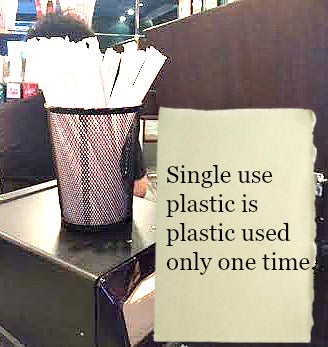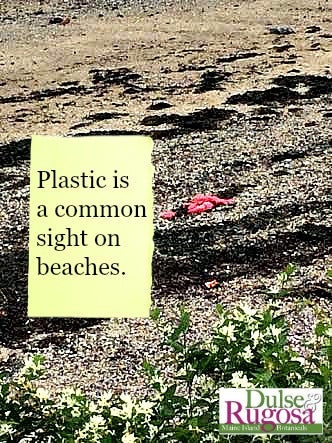Plastic Free Friday
World Ocean Day was June 8th and this year the theme was plastic. “Healthy Oceans, Healthy Planets” encourages individuals and organizations across the planet to take action for preventing plastic pollution in our ocean.
In a nutshell, here is what's happening- we as humans are simply becoming far too dependent on plastic. Plastic is everywhere. And as our lives get busier and busier, convenience is what we want and plastic is often the solution.

The problem is plastic is a material that is made to be durable. Yet so much of the plastic we use is single use- think water bottles, grocery bags, coffee cups, lids and straws. Single use plastic is the term used to describe this type of plastic. It’s often used only one time. And let’s be honest- this type of plastic has the least chance of actually being recycled. For example, after a great movie, it’s easy to toss your popcorn, soda cup and straw right into the trash. The result, in America we use about 30 million tons of plastic per year and only 8% gets recycled. The rest is incinerated or simply allowed to settle on the Ear
Plastic is made from oil. 17 million barrels of oil are used to make water bottles that are used only once. It’s not healthy to reuse many plastic containers because you have no idea what chemicals have been added. Chemicals like BPA can seriously affect our bodies.
When plastic settles into the Earth it simply keeps breaking down into smaller and smaller pieces. These pieces end up in the water system and finally dumped into our oceans.
The reason World Ocean Day focused on plastic this year is because our oceans make our Earth livable for all creatures big and small, land or water. We need healthy oceans for a healthy Earth no matter where one chooses to live. And sadly, much of our single use plastic ends up floating in our oceans. Sea creatures mistake plastic for food and this leads to all sorts of serious issues.

Dulse and Rugosa is an island based business. We harvest seaweeds from our shores. We want clean oceans now and for future generations. And if that is a bit inconvenient- tough.
Here are some great resources-
http://www.plasticpollutioncoalition.org/
http://www.lonelywhale.org/
